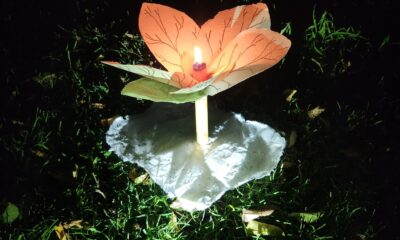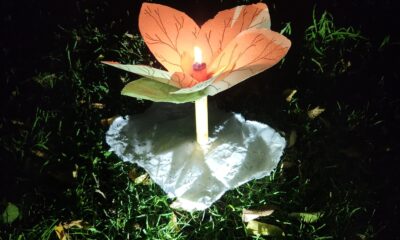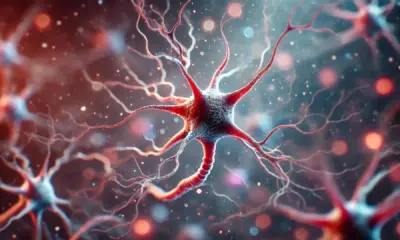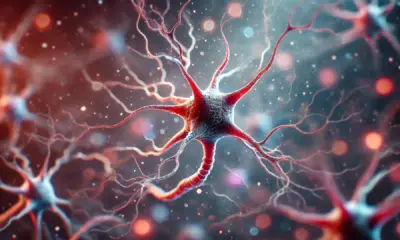Lifestyle
Debunking Reiki Myths: Essential Facts About This Healing Art

Reiki, a form of energy healing originating from Japan, has been subject to various misconceptions that can cloud its benefits and practices. Recently, a Reiki Master addressed these myths, providing clarity and separating fact from fiction in this ancient healing art.
Understanding Reiki requires a look into its foundational principles. The practice involves channeling energy to promote relaxation, reduce stress, and enhance overall well-being. Contrary to popular belief, Reiki is not a religious practice nor does it involve any supernatural elements.
Common Misconceptions About Reiki
One of the most prevalent myths is that Reiki is a substitute for medical treatment. According to health professionals, Reiki should complement, not replace, traditional medical care. It can serve as a supportive therapy, helping patients manage pain and anxiety during medical treatments.
Another myth is that only specific individuals can perform Reiki. While it is true that training and attunements are necessary to practice effectively, anyone can learn Reiki. Classes are available worldwide, and many people have found empowerment through this practice.
Some people believe that Reiki must take place in a specific setting, such as a clinic or wellness center. In reality, Reiki can be performed in various environments, including homes, offices, and even hospitals. Its versatility is one of the reasons for its growing popularity among individuals seeking alternative therapies.
The Benefits and Growing Popularity of Reiki
Research indicates that Reiki can offer numerous benefits, including significant stress reduction and improved emotional health. A study published in 2023 showed that patients who received Reiki reported lower levels of anxiety and improved quality of life. This growing body of evidence has led to wider acceptance of Reiki among healthcare providers.
Misunderstanding the nature of Reiki can lead to skepticism. However, many practitioners emphasize that Reiki is not about “magic” or “mysticism.” Instead, it focuses on mindfulness and the belief that everyone can tap into their own healing energy.
In addition to its therapeutic benefits, Reiki is being integrated into wellness programs in various institutions. Hospitals and health facilities are increasingly offering Reiki sessions to patients, recognizing its potential to enhance healing outcomes. The practice’s rise in popularity reflects a global shift toward holistic health approaches, where mental, emotional, and physical well-being are interconnected.
As more individuals explore alternative health practices, understanding the realities of Reiki becomes crucial. By addressing these common myths, practitioners aim to create a more informed community.
In summary, Reiki offers a unique approach to health and wellness that is grounded in the principles of energy healing. As misconceptions continue to circulate, it is essential for both practitioners and the public to engage in open discussions about what Reiki truly entails. By doing so, they can foster a more supportive environment for those seeking holistic healing options.
-

 Technology4 months ago
Technology4 months agoDiscover the Top 10 Calorie Counting Apps of 2025
-

 Health2 months ago
Health2 months agoBella Hadid Shares Health Update After Treatment for Lyme Disease
-

 Health3 months ago
Health3 months agoErin Bates Shares Recovery Update Following Sepsis Complications
-

 Technology3 weeks ago
Technology3 weeks agoDiscover 2025’s Top GPUs for Exceptional 4K Gaming Performance
-

 Technology2 months ago
Technology2 months agoElectric Moto Influencer Surronster Arrested in Tijuana
-

 Technology4 months ago
Technology4 months agoDiscover How to Reverse Image Search Using ChatGPT Effortlessly
-

 Technology4 months ago
Technology4 months agoMeta Initiates $60B AI Data Center Expansion, Starting in Ohio
-

 Technology4 months ago
Technology4 months agoRecovering a Suspended TikTok Account: A Step-by-Step Guide
-

 Health4 months ago
Health4 months agoTested: Rab Firewall Mountain Jacket Survives Harsh Conditions
-

 Lifestyle4 months ago
Lifestyle4 months agoBelton Family Reunites After Daughter Survives Hill Country Floods
-

 Technology3 months ago
Technology3 months agoUncovering the Top Five Most Challenging Motorcycles to Ride
-

 Technology4 weeks ago
Technology4 weeks agoDiscover the Best Wireless Earbuds for Every Lifestyle





















